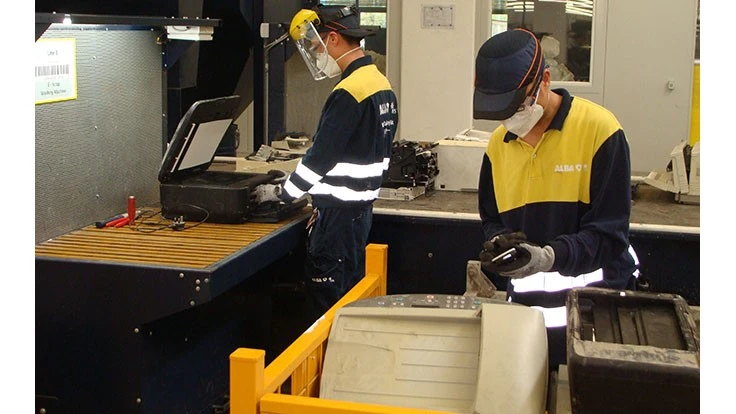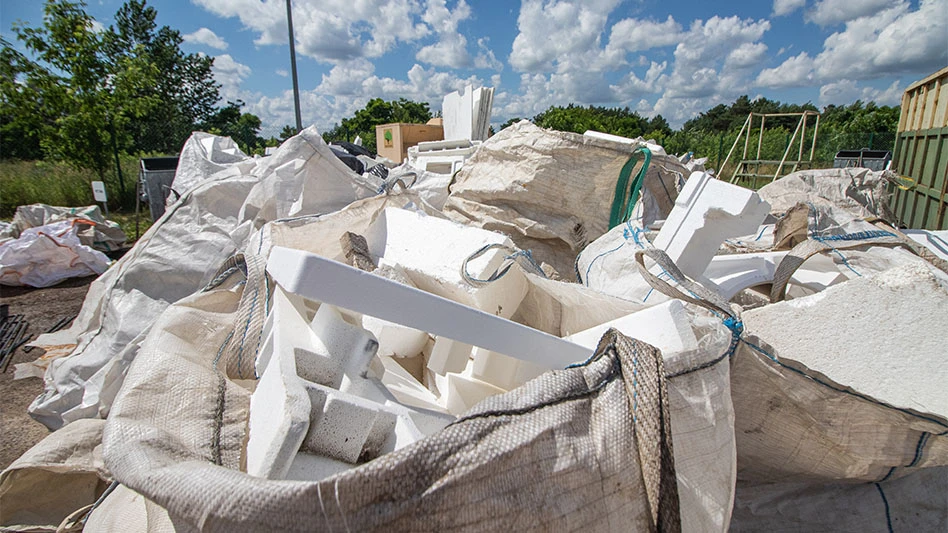
Recycling Today archives
The Brussels-based European Waste Management Association (FEAD) and the European Electronics Recyclers Association (EERA), based in the Netherlands, say Basel Convention e-scrap amendments and their implementation means it is “crucial to bring the need for clear and efficient shipment rules to the negotiation table.”
The two groups say there is too great a likelihood a lack of clarity will lead to “necessarily heavy, costly, and lengthy procedures” which they say are “trade impediments to circular business models, which should be based on open and safe markets.”
“To enable the circular economy in a competitive and innovation driven way, with the minimum environmental impact, waste managers need an economy of scale in which end-of-life products can find its way to the most adequate and specialized facilities in order to be recycled into valuable secondary raw materials that will reenter the product’s value chain," the organizations say.
Following a survey among members companies of both associations, the results show “clear deficiencies and big disparities” in the implementation of the Prior Informed Consent (PIC) procedure, FEAD and EERA say.
They say it is critical to update and improve the procedure to make it “simple, online and transparent, strengthening the preconsent status for facilities and revising of the financial guarantees by including a risk-based approach.”
FEAD and EERA say they “strongly advocate for such improvements that will facilitate the trade of recyclables in an environmentally sound and economically efficient manner, and hope that the practical examples provided will serve the legislator and competent authorities to address the issue and implement the needed reforms in the system.”
“The preconsented status for facilities must become a reality recognized by all competent authorities in Organization of Economic Cooperation and Development (OECD) countries," EERA President Kurt Kyck says. "It is worrying to see that 30 years after its regulation, members reported there being little or no difference in the administrative and financial burden between a consignment made to a preconsented facility or not.”
FEAD President Peter Kurth says, “Notification procedures are currently long and burdensome, which needs to change if we want to make the circular economy a reality. In this sense, the unification and harmonization of administrative costs is also important. These are currently prohibitively high and not proportional to the risk, costs or work involved, and significantly increase the overall financial burden of legitimate global e-waste operators. What we are asking for is harmonized, transparent, risk-based requirements.”
Latest from Recycling Today
- Alpla calls 2024 year of recycling growth
- Altilium says agreement puts it on lithium recycling path
- NWRA, SWANA partner to address lithium-ion batteries
- Corinth, Texas, renews waste contract with CWD
- Fresh Perspective: Sarah Zwilsky
- Plastics Industry Association announces leadership changes
- QCC celebrates 50th anniversary
- Venture Metals acquires 2 nonferrous processors





